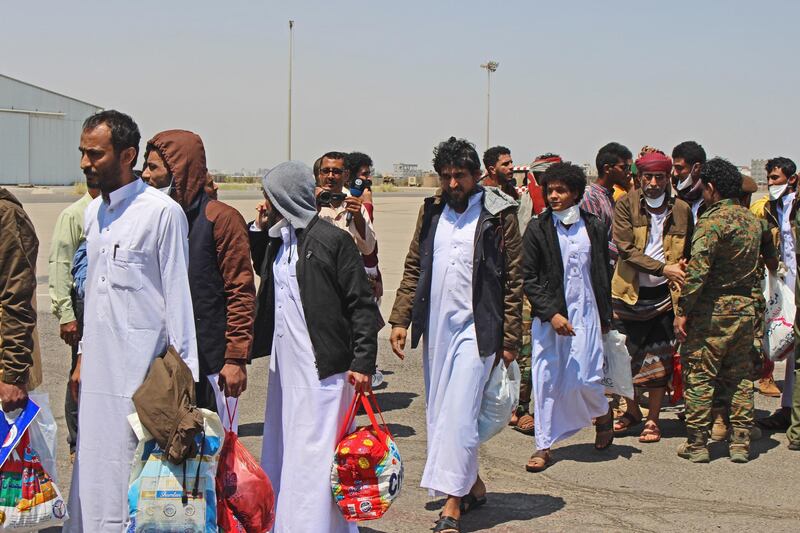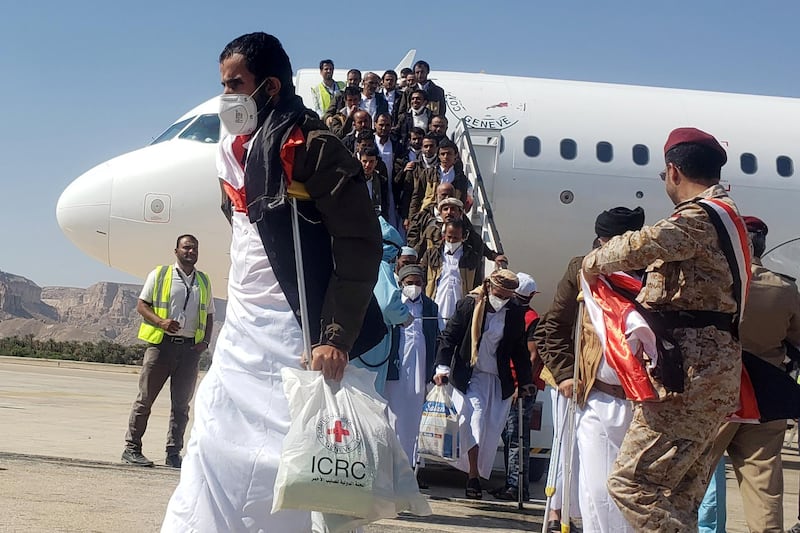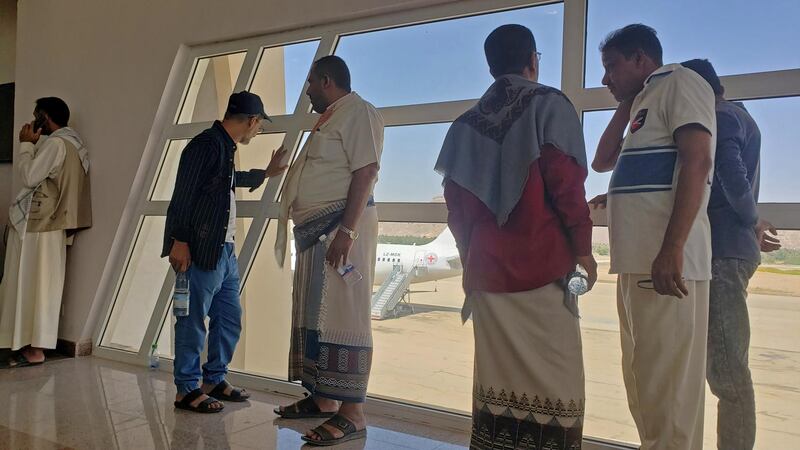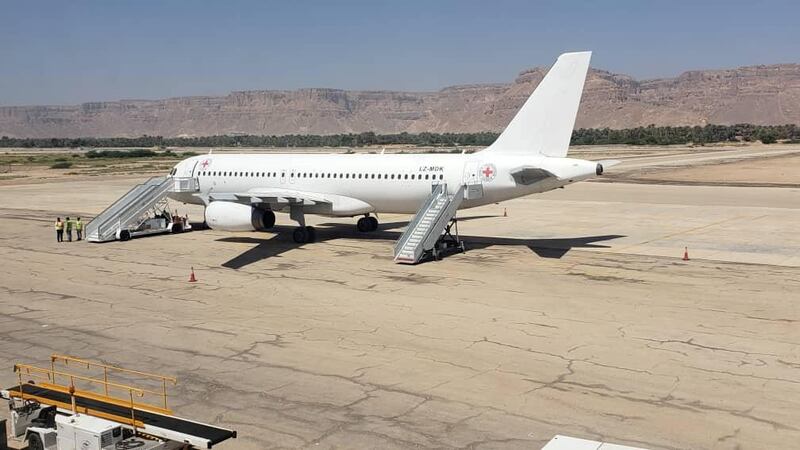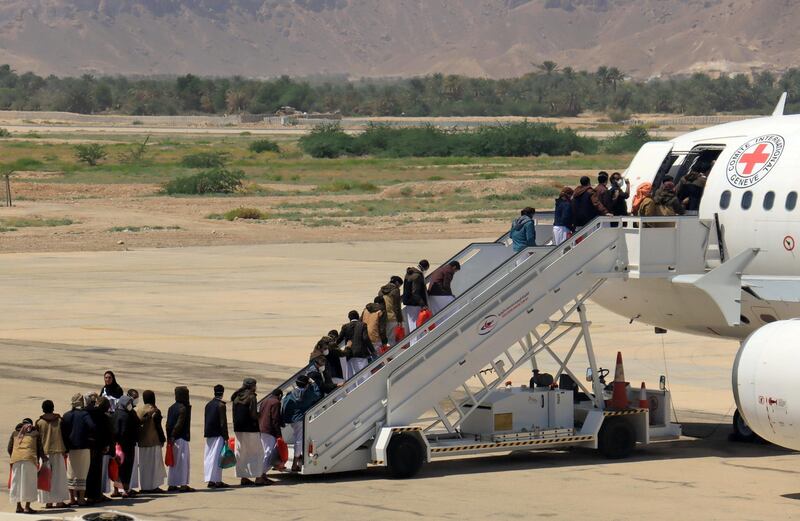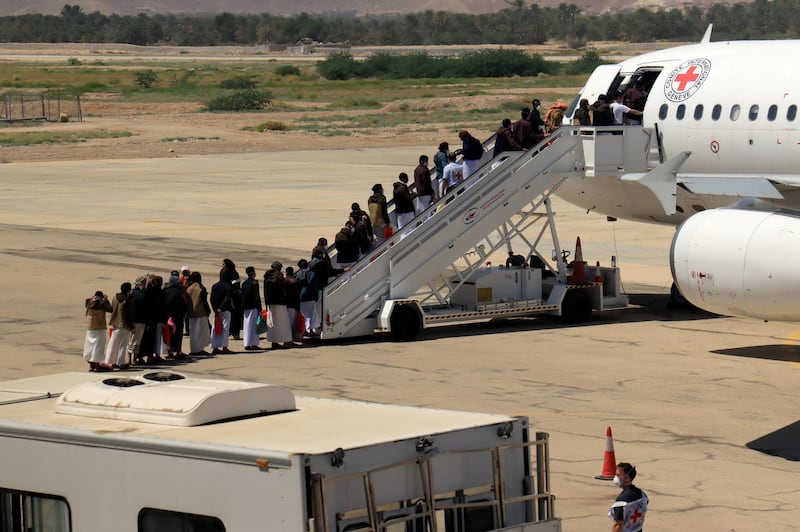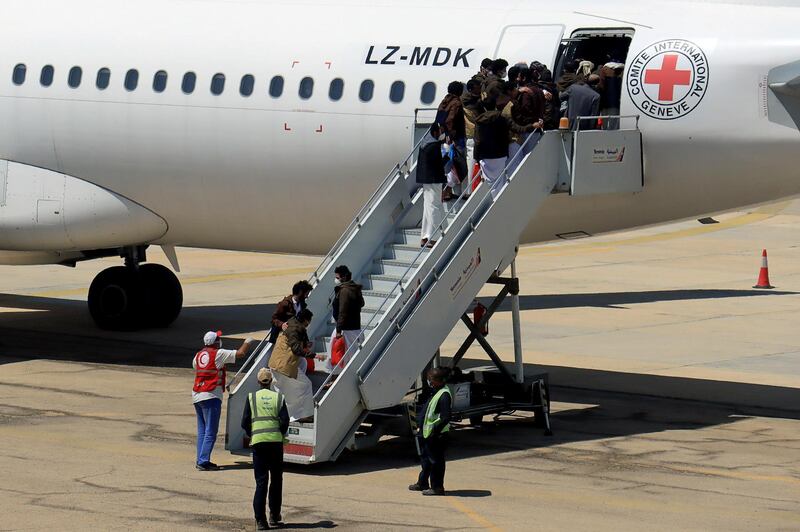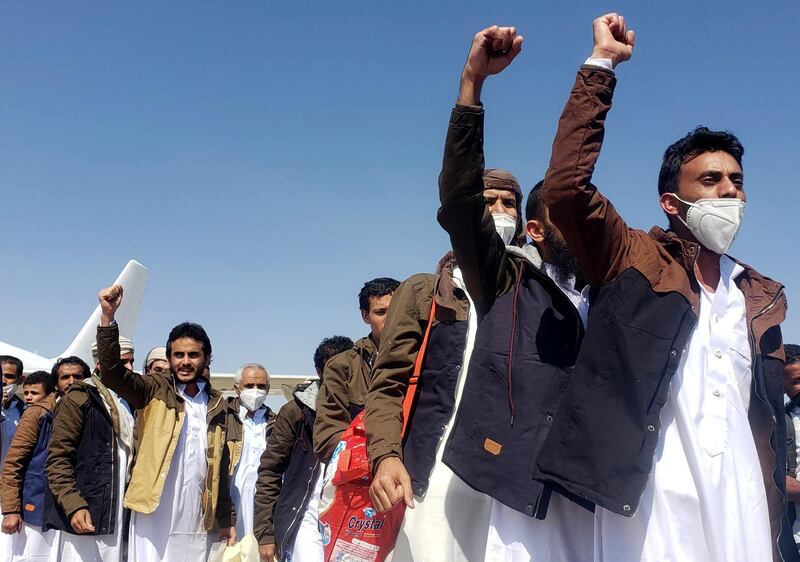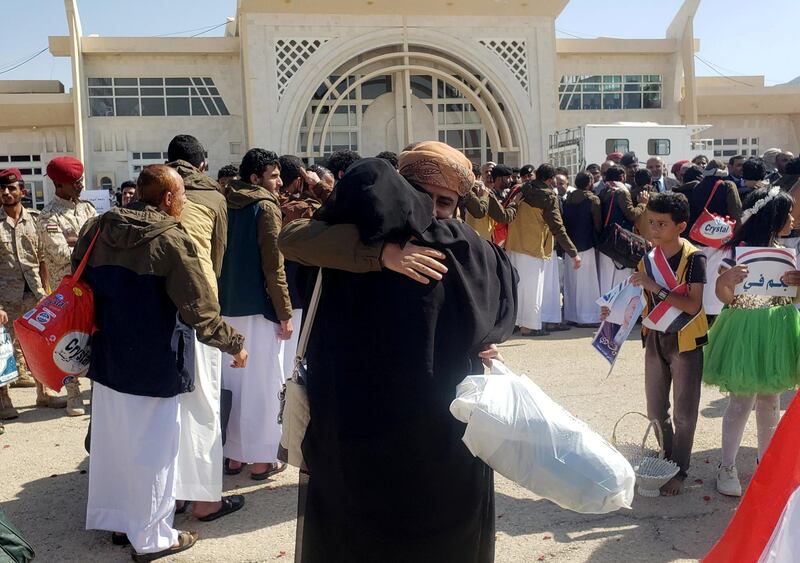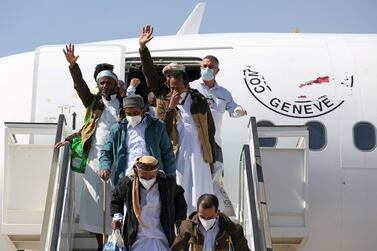Pro-government fighters held by Yemen's Houthi rebels are regularly subjected to mistreatment and torture, according to those released under a historic prisoner exchange completed on Friday.
More than 1,000 prisoners from both sides were freed over two days in the largest such exchange of the five-year civil war, raising hopes for UN-led efforts to broker peace.
The International Committee of the Red Cross, which supervised the operation, said that on Friday planes carrying a352 freed prisoners landed in Sanaa, Yemen's rebel-held capital, and the southern port city of Aden, the seat of the internationally recognised government.
"I spent four years in a cramped room underground," Hasan Ibrahim Al Musaiybli, 33, told The National after disembarking at Aden's airport.
“I was exposed to all horrible types of torture. They repeatedly hung me from the ceiling and slapped my face while interrogating me.
"I spent days and nights without sleeping. They usually came to question us at night so we couldn’t sleep.”
Mr Al Musaiybli, who was captured while fighting the rebels in the Hays area of Hodeidah province, said he was also repeatedly electrocuted and beaten with batons, causing serious damage to his kidneys.
Despite the hopes for peace, Mr Al Musaiybli said he was willing to return to combat.
“I will go back to the front to fight them again and again. I will fight them until the end of my life," he said.
Tariq Mohammed Saeed, 26, told The National how he was left with a permanent disability after being denied proper treatment for months after he was captured during a raid on rebel positions in southern Hodeidah in 2017.
“The Houthis captured me after I was shot in an offensive we launched to liberate sites under their control in Al Jah area in Beit Al Faqih district,” Mr Saeed said.
“They took me to a prison in Hodeidah city, where they gave some first aid. Then they took me to a prison in Sanaa where they left me without any treatment until my wound became inflamed and rotten.
"After two months they took me to a novice doctor of theirs who carried out an operation which gave me a shortened leg and permanent disability, and severe pain that never stops."
But he said he was overjoyed to be free and return to his loved ones. “Getting out of that hell is a relief, despite all the pain and the frustration I feel because of my leg,” he said.
The Yemeni government called for the UN and Red Cross to conduct medical checks on the freed prisoners and investigate their accounts of mistreatment by the rebels.
Information Minister Muammar Al Eryani also demanded a "swift, transparent and just investigation" into the deaths of prisoners in Houthi detention, the government's Saba news agency reported.
Col Ahmed Al Shahtari, 42, said it would have been better for high-ranking officers to die in combat than be captured by the rebels.
"We got the lion's share of torture in their 'graves' because we are field commanders. They tried every brutal thing on us to get information," said Col Al Shahtari, who was captured along with his soldiers during a raid on Houthi positions in Al Jah in 2017.
“Every Houthi interrogator comes with his own tactics.
"They burnt me with fire many times and beat me with electrical cables, attempting to get information about the [government] Joint Forces in Hodeidah.
“I can’t believe that I am free and out of that grave where I spent 855 gloomy days. I feel like I was born again. I am grateful for all of those who worked hard to bring us back to life.”
Abdullatif Al Hawali, 41, who was also captured in Hodeidah, described other methods of torture used by the rebels.
“They used to hang me from the ceiling with my face down for many hours. They used to prevent me from going to the restroom and forced me to urinate on myself. They repeatedly hit me on my head, I fell unconscious many times,” he said.
“Alhamdulillah, this is a blessing. I feel like I got out of Abu Ghraib prison or Guantanamo.”
Maj Gen Abdulkhaliq Al Wakashi, a commander of the Elite forces of former president Ali Abdullah Saleh, said he was also tortured.
Maj Gen Al Wakashi was arrested on December 5, 2017, after clashes erupted in Sanaa between the Houthis and Saleh loyalists after the former president broke off his alliance with the rebels.
“They used all their brutality to humiliate us," Maj Gen Al Wakashi said.
